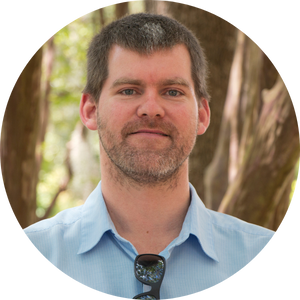Eben Broadbent
Associate Professor, Forest Ecology and Geomatics
Eben N. Broadbent is an associate professor of forest ecology and geomatics in the School of Forest, Fisheries, and Geomatics Sciences at the University of Florida where he co-directs the Spatial Ecology and Conservation Lab and the GatorEye Unmanned Flying Laboratory Project with Dr. Almeyda Zambrano (Prof. of tropical conservation and development, TRSM, UFL) and is an affiliated researcher with the Woods Institute for the Environment at Stanford University.
Over the last decade he has conducted research focusing on the tropics, including in the Brazilian, Bolivian, and Peruvian Amazon, Papua Indonesia, Hawaii, Costa Rica, and Mexico, and also including work in California and in his childhood forests of New England. He has worked as a research ecologist in the Department of Global Ecology of the Carnegie Institution for Science at Stanford University, at the Instituto Boliviano de Investigación Forestal in Santa Cruz, Bolivia, and at Hudsonia Ltd. at Bard College. He is involved in projects linking social sciences with forest ecology, conservation biology and remote sensing, including current projects investigating feedbacks between soil fertility and land use decision making in the context of rapid infrastructure development in the Amazon and linking land use change with water quality and biodiversity in Costa Rica.
-
Research Interests
- Tropical forest ecology, focusing on degradation, restoration and recovery, in the context of land use and land cover change.
- Remote sensing, including hyperspectral imaging and LiDAR, from satellites, aircraft and unmanned aerial systems (UAS).
- Conservation biology, focused on human-wildlife interactions and landscape structure, using soundscapes and camera traps.
- Ecosystem and canopy ecology, such as using a LiCOR 6400 for leaf and soil gas exchange and carbon dynamics.
- Geospatial analyses, including forest fragmentation and connectivity, for study regions ranging from local to global.
- Human-environment interactions integrating field surveys and participatory mapping in high biodiversity regions.
- Landscape simulation models, such as LANDIS and InVEST for ecosystem services under future scenarios.
- Integration of all interests through interdisciplinary collaborations.
-
Education
- PhD, Biology, Stanford University, 2012
- MS, Forest Resources and Conservation, University of Florida, 2005
- BA, Botany, University of Vermont, 2000
-
Publications
- Chazdon R, Broadbent EN, et al. 2016. Carbon mitigation potential of Neotropical secondary forests. Science Advances
- Poorter L, Bongers F, Aide M, Almeyda Zambrano AM, Balvanera P, Becknell J, Boukili V, Broadbent EN, Chazdon R, et al. 2016. Biomass Resilience in the Tropics. Nature.
- Anderson-Teixeira K, … Broadbent EN, et al. 2014. CTFS-ForestGEO: A worldwide network monitoring forests in an era of global change. Global Change Biology.
- Chavez AB, Broadbent EN, Almeyda Zambrano AM. 2014. Smallholder policy adoption and land cover change in the southeastern Peruvian Amazon: A twenty-year perspective. Applied Geography
- Broadbent EN, Almeyda Zambrano AM, Asner GP, Field CB, Kennedy-Bowdoin T, Knapp D, Rosenheim B, Burke D, Giardina C, Cordell S. 2014. Linking rainforest microclimate and ecophysiology through fusion of airborne waveform LiDAR and hyperspectral imagery. Ecosphere
- Broadbent EN, Almeyda Zambrano AM, Asner GP, Soriano M, Ramos de Souza H, Field CB, Peña-Claros M, Adams R, Giles L. 2014. Integrating stand and soil properties to understand foliar nutrient dynamics during forest succession following slash-and-burn agriculture in the Bolivian Amazon. PLOS ONE
- Almeyda Zambrano AM, Broadbent EN, Durham WH. 2010. Social and environmental effects of ecotourism in the Osa Peninsula of Costa Rica: the Lapa Rios case. Journal of Ecotourism
- Broadbent EN, Asner GP, Keller M, Knapp D, Oliveira P, Silva N. 2008. Forest fragmentation from deforestation and selective logging in the Brazilian Amazon. Biological Conservation
- Broadbent EN, Asner GP, Soriano M, Palace M, Peña-Claros M. 2008. Spatial distribution of biomass and diversity in lowland Bolivian forest: linking field and remote sensing measurements. Forest Ecology and Management
- Broadbent EN, Zarin D, Asner GP, Peña-Claros M, Cooper A, Littell R. 2006. Recovery of forest spectral and structural properties following selective logging in Lowland Bolivia. Ecological Applications
- Asner GP, Broadbent EN, Oliveira P, Keller M, Knapp D, Silva D. 2006: Cover. Condition and fate of logged forests in the Brazilian Amazon. Proceedings of the National Academy of Sciences (PNAS)
- Asner GP, Knapp D, Broadbent EN, Oliveira P, Keller M, Silva M. 2005. Selective logging in the Brazilian Amazon. Science

